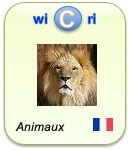Links to Exploration step
Le document en format XML
<record><TEI><teiHeader><fileDesc><titleStmt><title xml:lang="en">Behavioural consequences of sensory plasticity in guppies</title><author><name sortKey="Chapman, Ben B" sort="Chapman, Ben B" uniqKey="Chapman B" first="Ben B." last="Chapman">Ben B. Chapman</name><affiliation><nlm:aff id="af1"><institution>Institute of Integrative and Comparative Biology, University of Leeds</institution>,<addr-line>Leeds LS2 9JT</addr-line>,<country>UK</country></nlm:aff></affiliation><affiliation><nlm:aff id="af3"><addr-line>Division of Limnology, Department of Ecology</addr-line>,<institution>Ekologhuset, Lund University</institution>,<addr-line>22362 Lund</addr-line>,<country>Sweden</country></nlm:aff></affiliation></author><author><name sortKey="Morrell, Lesley J" sort="Morrell, Lesley J" uniqKey="Morrell L" first="Lesley J." last="Morrell">Lesley J. Morrell</name><affiliation><nlm:aff id="af1"><institution>Institute of Integrative and Comparative Biology, University of Leeds</institution>,<addr-line>Leeds LS2 9JT</addr-line>,<country>UK</country></nlm:aff></affiliation></author><author><name sortKey="Tosh, Colin R" sort="Tosh, Colin R" uniqKey="Tosh C" first="Colin R." last="Tosh">Colin R. Tosh</name><affiliation><nlm:aff id="af1"><institution>Institute of Integrative and Comparative Biology, University of Leeds</institution>,<addr-line>Leeds LS2 9JT</addr-line>,<country>UK</country></nlm:aff></affiliation></author><author><name sortKey="Krause, Jens" sort="Krause, Jens" uniqKey="Krause J" first="Jens" last="Krause">Jens Krause</name><affiliation><nlm:aff id="af2"><addr-line>Department of Biology and Ecology of Fishes</addr-line>,<institution>Leibniz-Institute of Freshwater Ecology and Inland Fisheries</institution>,<addr-line>Müggelseedamm 310, 12587 Berlin</addr-line>,<country>Germany</country></nlm:aff></affiliation></author></titleStmt><publicationStmt><idno type="wicri:source">PMC</idno><idno type="pmid">20053643</idno><idno type="pmc">2871941</idno><idno type="url">http://www.ncbi.nlm.nih.gov/pmc/articles/PMC2871941</idno><idno type="RBID">PMC:2871941</idno><idno type="doi">10.1098/rspb.2009.2055</idno><date when="2010">2010</date><idno type="wicri:Area/Pmc/Corpus">000026</idno><idno type="wicri:explorRef" wicri:stream="Pmc" wicri:step="Corpus" wicri:corpus="PMC">000026</idno></publicationStmt><sourceDesc><biblStruct><analytic><title xml:lang="en" level="a" type="main">Behavioural consequences of sensory plasticity in guppies</title><author><name sortKey="Chapman, Ben B" sort="Chapman, Ben B" uniqKey="Chapman B" first="Ben B." last="Chapman">Ben B. Chapman</name><affiliation><nlm:aff id="af1"><institution>Institute of Integrative and Comparative Biology, University of Leeds</institution>,<addr-line>Leeds LS2 9JT</addr-line>,<country>UK</country></nlm:aff></affiliation><affiliation><nlm:aff id="af3"><addr-line>Division of Limnology, Department of Ecology</addr-line>,<institution>Ekologhuset, Lund University</institution>,<addr-line>22362 Lund</addr-line>,<country>Sweden</country></nlm:aff></affiliation></author><author><name sortKey="Morrell, Lesley J" sort="Morrell, Lesley J" uniqKey="Morrell L" first="Lesley J." last="Morrell">Lesley J. Morrell</name><affiliation><nlm:aff id="af1"><institution>Institute of Integrative and Comparative Biology, University of Leeds</institution>,<addr-line>Leeds LS2 9JT</addr-line>,<country>UK</country></nlm:aff></affiliation></author><author><name sortKey="Tosh, Colin R" sort="Tosh, Colin R" uniqKey="Tosh C" first="Colin R." last="Tosh">Colin R. Tosh</name><affiliation><nlm:aff id="af1"><institution>Institute of Integrative and Comparative Biology, University of Leeds</institution>,<addr-line>Leeds LS2 9JT</addr-line>,<country>UK</country></nlm:aff></affiliation></author><author><name sortKey="Krause, Jens" sort="Krause, Jens" uniqKey="Krause J" first="Jens" last="Krause">Jens Krause</name><affiliation><nlm:aff id="af2"><addr-line>Department of Biology and Ecology of Fishes</addr-line>,<institution>Leibniz-Institute of Freshwater Ecology and Inland Fisheries</institution>,<addr-line>Müggelseedamm 310, 12587 Berlin</addr-line>,<country>Germany</country></nlm:aff></affiliation></author></analytic><series><title level="j">Proceedings of the Royal Society B: Biological Sciences</title><idno type="ISSN">0962-8452</idno><idno type="eISSN">1471-2954</idno><imprint><date when="2010">2010</date></imprint></series></biblStruct></sourceDesc></fileDesc><profileDesc><textClass></textClass></profileDesc></teiHeader><front><div type="abstract" xml:lang="en"><p>Sensory plasticity, whereby individuals compensate for sensory deprivation in one sense by an improvement in the performance of an alternative sense, is a well-documented phenomenon in nature. Despite this, the behavioural and ecological consequences of sensory plasticity have not been addressed. Here we show experimentally that some components (vision and chemoreception) of the sensory system of guppies are developmentally plastic, and that this plasticity has important consequences for foraging behaviour. Guppies reared under low light conditions had a significantly stronger response to chemical food cues encountered in isolation than fish reared at higher light levels. Conversely, they exhibited a weaker response to visual-only cues. When visual and olfactory/gustatory cues were presented together, no difference between the strength of response for fish reared at different light intensities was evident. Our data suggest that guppies can compensate for experience of a visually poor, low light environment via a sensory switch from vision to olfaction/gustation. This switch from sight to chemoreception may allow individuals to carry out the foraging behaviour that is essential to their survival in a visually poor environment. These considerations are especially important given the increasing frequency of anthropogenic changes to ecosystems. Compensatory phenotypic plasticity as demonstrated by our study may provide a hitherto unconsidered buffer that could allow animals to perform fundamental behaviours in the face of considerable change to the sensory environment.</p></div></front></TEI><pmc article-type="research-article"><pmc-comment>The publisher of this article does not allow downloading of the full text in XML form.</pmc-comment>
<front><journal-meta><journal-id journal-id-type="nlm-ta">Proc Biol Sci</journal-id><journal-id journal-id-type="publisher-id">RSPB</journal-id><journal-id journal-id-type="hwp">royprsb</journal-id><journal-title-group><journal-title>Proceedings of the Royal Society B: Biological Sciences</journal-title></journal-title-group><issn pub-type="ppub">0962-8452</issn><issn pub-type="epub">1471-2954</issn><publisher><publisher-name>The Royal Society</publisher-name></publisher></journal-meta><article-meta><article-id pub-id-type="pmid">20053643</article-id><article-id pub-id-type="pmc">2871941</article-id><article-id pub-id-type="doi">10.1098/rspb.2009.2055</article-id><article-id pub-id-type="publisher-id">rspb20092055</article-id><article-categories><subj-group subj-group-type="hwp-journal-coll"><subject>1001</subject><subject>14</subject><subject>60</subject><subject>58</subject></subj-group><subj-group subj-group-type="heading"><subject>Research articles</subject></subj-group></article-categories><title-group><article-title>Behavioural consequences of sensory plasticity in guppies</article-title></title-group><contrib-group><contrib contrib-type="author"><name><surname>Chapman</surname><given-names>Ben B.</given-names></name><xref ref-type="aff" rid="af1">1</xref><xref ref-type="aff" rid="af3">3</xref><xref ref-type="corresp" rid="cor1">*</xref></contrib><contrib contrib-type="author"><name><surname>Morrell</surname><given-names>Lesley J.</given-names></name><xref ref-type="aff" rid="af1">1</xref></contrib><contrib contrib-type="author"><name><surname>Tosh</surname><given-names>Colin R.</given-names></name><xref ref-type="aff" rid="af1">1</xref></contrib><contrib contrib-type="author"><name><surname>Krause</surname><given-names>Jens</given-names></name><xref ref-type="aff" rid="af2">2</xref></contrib></contrib-group><aff id="af1"><label>1</label><institution>Institute of Integrative and Comparative Biology, University of Leeds</institution>,<addr-line>Leeds LS2 9JT</addr-line>,<country>UK</country></aff><aff id="af2"><label>2</label><addr-line>Department of Biology and Ecology of Fishes</addr-line>,<institution>Leibniz-Institute of Freshwater Ecology and Inland Fisheries</institution>,<addr-line>Müggelseedamm 310, 12587 Berlin</addr-line>,<country>Germany</country></aff><aff id="af3"><label>3</label><addr-line>Division of Limnology, Department of Ecology</addr-line>,<institution>Ekologhuset, Lund University</institution>,<addr-line>22362 Lund</addr-line>,<country>Sweden</country></aff><author-notes><corresp id="cor1"><label>*</label>Author for correspondence (<email>ben.chapman@limnol.lu.se</email>).</corresp></author-notes><pub-date pub-type="ppub"><day>7</day><month>5</month><year>2010</year></pub-date><pub-date pub-type="epub"><day>6</day><month>1</month><year>2010</year></pub-date><volume>277</volume><issue>1686</issue><fpage>1395</fpage><lpage>1401</lpage><history><date date-type="received"><day>11</day><month>11</month><year>2009</year></date><date date-type="accepted"><day>8</day><month>12</month><year>2009</year></date></history><permissions><copyright-statement>© 2010 The Royal Society</copyright-statement><copyright-year>2010</copyright-year></permissions><self-uri content-type="pdf" xlink:type="simple" xlink:href="rspb20092055.pdf"></self-uri><abstract><p>Sensory plasticity, whereby individuals compensate for sensory deprivation in one sense by an improvement in the performance of an alternative sense, is a well-documented phenomenon in nature. Despite this, the behavioural and ecological consequences of sensory plasticity have not been addressed. Here we show experimentally that some components (vision and chemoreception) of the sensory system of guppies are developmentally plastic, and that this plasticity has important consequences for foraging behaviour. Guppies reared under low light conditions had a significantly stronger response to chemical food cues encountered in isolation than fish reared at higher light levels. Conversely, they exhibited a weaker response to visual-only cues. When visual and olfactory/gustatory cues were presented together, no difference between the strength of response for fish reared at different light intensities was evident. Our data suggest that guppies can compensate for experience of a visually poor, low light environment via a sensory switch from vision to olfaction/gustation. This switch from sight to chemoreception may allow individuals to carry out the foraging behaviour that is essential to their survival in a visually poor environment. These considerations are especially important given the increasing frequency of anthropogenic changes to ecosystems. Compensatory phenotypic plasticity as demonstrated by our study may provide a hitherto unconsidered buffer that could allow animals to perform fundamental behaviours in the face of considerable change to the sensory environment.</p></abstract><kwd-group><kwd>sensory plasticity</kwd><kwd>foraging behaviour</kwd><kwd>light environment</kwd><kwd>development</kwd></kwd-group></article-meta></front></pmc></record>Pour manipuler ce document sous Unix (Dilib)
EXPLOR_STEP=$WICRI_ROOT/Wicri/Eau/explor/GremilleV2/Data/Pmc/Corpus
HfdSelect -h $EXPLOR_STEP/biblio.hfd -nk 000026 | SxmlIndent | more
Ou
HfdSelect -h $EXPLOR_AREA/Data/Pmc/Corpus/biblio.hfd -nk 000026 | SxmlIndent | more
Pour mettre un lien sur cette page dans le réseau Wicri
{{Explor lien
|wiki= Wicri/Eau
|area= GremilleV2
|flux= Pmc
|étape= Corpus
|type= RBID
|clé=
|texte=
}}
|
| This area was generated with Dilib version V0.6.29. | |

